Políticas educativas, filosofía y planificación : la estrategia dominicana del Plan Decenal, 1990-2000
| Issue | Vol. 25 Núm. 2 (2000): Ciencia y Sociedad |
| DOI | |
| Publicado | jun. 1, 2000 |
|
Estadísticas |
Resumen
Este artículo provee una ilustración para el entendimiento de las filosofías, políticas y planificación educativa dominicana y por extensión para América Latina. El propósito del mismo es mirar a la estrategia del plan decenal de 1990 al 2000 desde una perspectiva de teorías políticas y enmarcado dentro de los campos de la educación comparativa, desarrollo nacional y economía global. El artículo está dirigido a dar una visión macro y fresca a la élite formuladora de políticas educativas. En este artículo, se niega la defensa de una posición dentro de la ecuación de intereses preestablecidos. También el artículo aspira a contribuir con una posición crítica positiva al diseño nacional educativo. En algunos momentos donde callo no implica la subscripción a la noción de callar para otorgar, sino, dejar el espacio a otros para que superen estas informaciones necesarias pero no suficientes.
Amove, Robert (1995). “Education as Contested Terrain in Nicaragua”, Comparative Education Review 39 (1), 28-53.
Avineri, Shlomo y Avner de-Shalit (Eds.). (1992). Communitarianism. Oxford, University Press.
Bray, Mark y David Stephens (Eds.) (1991). Education and Society in Africa. Great Britain: Biling & Sons Limited, Worcester.
Buzan, Barry; Charles Jones y Richard Little (1993). The Logic of Anarchy: Neorealism to Structural Realism, New York, Columbia Univeersity Press.
Caldwell, Brian J. and Jim M. Spinks (1998). The Self-Management School. New York, The Falmer Press.
Cowhey, Peter F and Jonathan D. Aronson (1993). Managing The World Economy: The Consequences of Cor por ate Alliances. New York, Council on Foreign Relations Press.
Dawson, Roger (1992). Secrets of Power Persuasio: Evereything You 7/ Ever Need to Get Anything Yuo 7/ Ever Want. New Jersey, Prentice Hall.
Dayer, Robert Allbert (1972). Struggle for China: The Anglo-American Relationship, 1917 - 1925. Doctoral dissertation, University of New York at Buffalo.
Delattre, Ewin J. (1988). Education and the Public Trust: The Imperative for Common Purposes, Washington: Ethic and Public Policy Center.
Dess, Gregory G and Alex Milíer (1993). Strategic Management, New York: McGraw-Hill.
Dewey, John (1916). Democracy and Educación. New York, The Macmillan Company.
Diesing, Paul (1991). How Does Social Science Work?. University of Pittsburgh.
Dixit, Avinash K. And Barry J. Nalebuff (1991). Thinking Strategic ally: The Competitive Edge in Business, Politics, and Everyday Life. New York, W. W. Northon & Company.
Dogan, Mattei and Ali Jkazangigil (1994). “Strategies in Comparative Research”. In: Mattei Dogan and Ali Kazanccigil (Ed.), Comparing Nations: Concepts Strategies Substance (pp. 1-13). Cambridge, USA: Blackewell.
Dottrens, Robert (1961). Cómo Mejorar los Programas Escolares: De Acuerdo con la Pedagogía Experimental, (Angel D. Márquez y Alicia A. Rozas Trans.). Buenos Aires, Kapelusz. (Trabajo original publicado en 1957)
Drucker, Peter F. (1993a). Post-Capitalist Society. New York, Harper Business.
Drucker, Peter F. (1993b). The Effective Executive. New York, Harper Business.
Drucker, Peter F. (1995). Management: Tasks, Resposibilities and Practices. New York, Harper & Row, Publishers.
Ehrenberg, Ronald G. (1994). Labor Markets and Integrating National Economies. Washington, The Brooking Institution.
Ferrell, Joseoh P. And Joáo B. Oliveira (Ed.), (1993). Teachers in Develloping Countries: Improving Efffectiveness and Managing Costs. Washington, The World Bank.
Friedman, John (1987). Planning in the Public Domain: From Knowledge to Action. Pricenton, New Jersey, Princeton University Press.
Jay, Antony (1994). Management and Machiavelli. San Diego, Pfeifer & Company.
Johnstone, Bruce D. (1994). “Reponse to Address by Wadi D. Haddad: D. Bruce Johnstone Lecture on International Educational Development”, Paper presented at the D. Bruce Johnston Leture on International Educational Development, SUNY at Albany, November 3
Juran, J. M. (1992). Juran on Quality by Design: The New Steps for Quality into Goods and Services. New York, The Free Press.
Gallagher, Shaun (1992). Hermanutics and Education. New York State University.
Goold, Michael; Andew Campbell and Marcus Alexander (1994). Corporate-Level Strategy: Creating Valué in the Multibusiness Company. New York, John Wiley & Sons, Inc.
Griffin, Trenholme J. And W. Russell Daggátt (1990). The Global Negociator: Building Strong Busines Relationships Anywhere in the World. USA, Haper Business.
Haass, Richard N. (1995). “Paradigm Lost” Foreign Affairs 74 (1), 43-58.
Haddad, Wadi D. (1994). “Policy and Planning Linkages: Lesson for Planning Educational Development”, Paper presented at the D. Bruce Johnston Leture on International Educational Development, SUNY at Albany, November 3.
Harris, Philip R. And Robert T. Moran (1991). Managing Cultural Differenees: High-Performance Strategies for a New World of Business. Houston, Gulf Publishing Company.
Hart, B.H. Liddell (1991). Strategy (2nd ed.). New York, Meridian.
Hayes, Robert H. and Steven G. Wheelwright (1979). ‘The Dynamics of Process-Product Life Cycles”, Harvard Business Review 57 (2), 127- 136.
Heineman, Robert A. William T. Bluhm, Steven A. Peterson and Edward N. Kearny (1990). The World of the Policy Analyst: Rationality, Valuesm andPolitics. Chatham, New Jersey, Chatham house Publishers, Inc.
Lewicki, Roy J. Joseph A. litterer; David M. Saunders and John W. Minton (Eds). (1993). Negotiation (2nd Ed.). Illinois, Irwin.
Lockheed, Marlaine E. and Adriaan M. Verspoor (1990). Improving Primary Education in Developing Countries: A Review ofPolicy Options. Washington, The World Bank.
Luttwak, Edward N. (1987). Strategy: The Logic of War and Peace. Cambridge, Massachusetts, The Belnap press of Harvad University Press.
Malagón, Jaqueline (1992, Diciembre 5). “Malagón Cita Importancia de Plan Decenal de Educación”. Listín Diario, p. 4. Malagón, Jacqueline (1992, Diciembre 14). “Secretaria Malagón Expone Programa Decenal”. Listín Diario, pp. 12, 13.
Mintzberg, Henry and James Brian Quinn (1992). The Strategy Process: Concepts and Contexts. Englewood Cliffs, New Jersey, Prentice Hall.
Mintzberg, Henry (1989). Mintzberg on Management: Inside our Strange World of Organizations. New York, The Free Press.
Paulino, Amable (1994). “Systemic Educational Policy: A Derivative of Political Theory or a Pedagogical Act”, Paper presented at the Regional Conference of the Comparative and International Education Society, Kent State University, Ohio, November, 4.
Paulino, Amable (1994). “The Dominhican Structural Adjustment: Impact on Educational Reform”, Int. J. Educational Development, 14 (2) pp. 109-118.
Paulino, Amable (1993). Dominican Secondary> Education Reform: Its Rise and Decline from 1970-1991. Unpublished doctoral dissertation, University of Wisconsin at Madison, Madison Wisconsin.
Paret, Peter (1992). Understanding War. New Jersey, Princeton University Press.
Peters, Tom (1994). Crazy Times Cali for Crazy Organizations. New York, Vintage Books.
Pike, Fredrick B. (1992). The United States and Latín American. Austin, University of Texas Press.
Porter, Michael E. (1990). The Competitive Advantages ofNations. New York, The Free Press
Porter, Michael E. (1980). Competitive Adavantage: Creating and Sustaining Superior Performance. New York, The Free Press.
Porter, Michael E. (1980). Competritive Strategy: Techeniques for Analizing Industries and Competitors. New York, The Free Press.
Reeve, C.D.C. (1992). Plato: Republic, (G.M.A. Grube Traductor). Indianapolis: Hackett Publishing Company, Inc. (Trabajo original fue escrito aproximadamente en el 380 B. C.)
Reich, Robert B. (1992). The Work of Nations. New York, Vintage Books.
Rieke, Richard D. y Malcolm O. Sillars (1993). Argumentation And Critical Desision Making. New York, Harper Collins College Publishers.
Riggs, Fred G. (1994). “Conceptual Homogenization of a Heteregeneous Field”. In: Mattei Dogan and Ali Kazancigil (Ed.), Comparing Nations: Concepts Stratagies Substance (pp. 73, 52). Cambridge, USA, Blackwell.
Rodo, José Enrique (1900). Ariel, Santo Domingo, Dominican Republic; Central de Libros, C por A.
Sartori, Giovanni (1994). “Compare Why and How”. In\ Mattei Dogan and Ali Kazacigil (Ed.), Compar ing Nations: Concepts Strategies Substance (pp. 14-34). Cambridge, USA: Blackwell.
Schein, Edgar H. (1987). Process Consultation. Menlo Park, California, Addison-Wesley Publishing Company.
Schelling, Thomas C. (1980). The Strategy of Conflict. Cambridge, Massachusetts, Harvard University.
Schmandt, Jurgen and James Everett Katz (1986). “The Scientific State: A Theory with Hypotheses,” Science, Technology, and Human Valúes, Winter 40-52.
Schubert, William H. (1986). Curriculum: Perspective, Paradigm, and Possibility. New York, Macmillan Publishing Company.
Secretaría de Estado de Educación Bellas Artes y Cultos (1994). Plan Decenal de Educación en Acción: ¿Porqué? ¿Para qué? De la Transformación Curricular en Marcha. Santo Domingo, Editora Corripio, C por A.
Secretaría de Estado de Educación Bellas Artes y Cultos (1994). Plan Decenal de Educación en Acción: Fundamentos del Curriculum. Santo Domingo, Alfa & Omega.
Secretaría de Estado de Educación Bellas Artes y Cultos (1991). “Ordenanza Departamental 5/91 Sobre la Estructura de Transición en el Sistema Educativo Dominicano”, Santo Domingo, Mimeo.
Skilbeck, Malcom (1987). “School.based curriculum develpment”, In: Víctor Lee and David Zeldin (Ed.), Planning in the Curriculum (pp. 18-34). Great Britain, Hodder and Stoughon in association with The Open University.
Smith, Garry D.; Danny R. Amold and Bobby G. Bizzell (1985). Business Strategy and Policy. Boston: Houghton Mifflin Company.
Strauss, Leo (1952). Persecution and the Art ofWriting. New York, The Free Press.
United Nations (1993). World Investment Report: Transnational Corporations and Integrated an International Production. New York, United Nations.
Wiarda, Howard J. (1993). Introduction to Comparative Politics: Concepts and Processes. Belmont, California, Wadsworth Publishing Company.
World Bank (1991). Access Quality and Efficiency in Caribbean Education: A Regional Study. Report N.° 9753-CRG. Washington D.C.: The World Bank.
- Resumen visto - 314 veces
- PDF descargado - 132 veces
- HTML descargado - 945 veces
Descargas
Licencia
Copyright
© Ciencia y Sociedad, 2017
Afiliaciones
Amable Paulino
Niagara Country Community College



